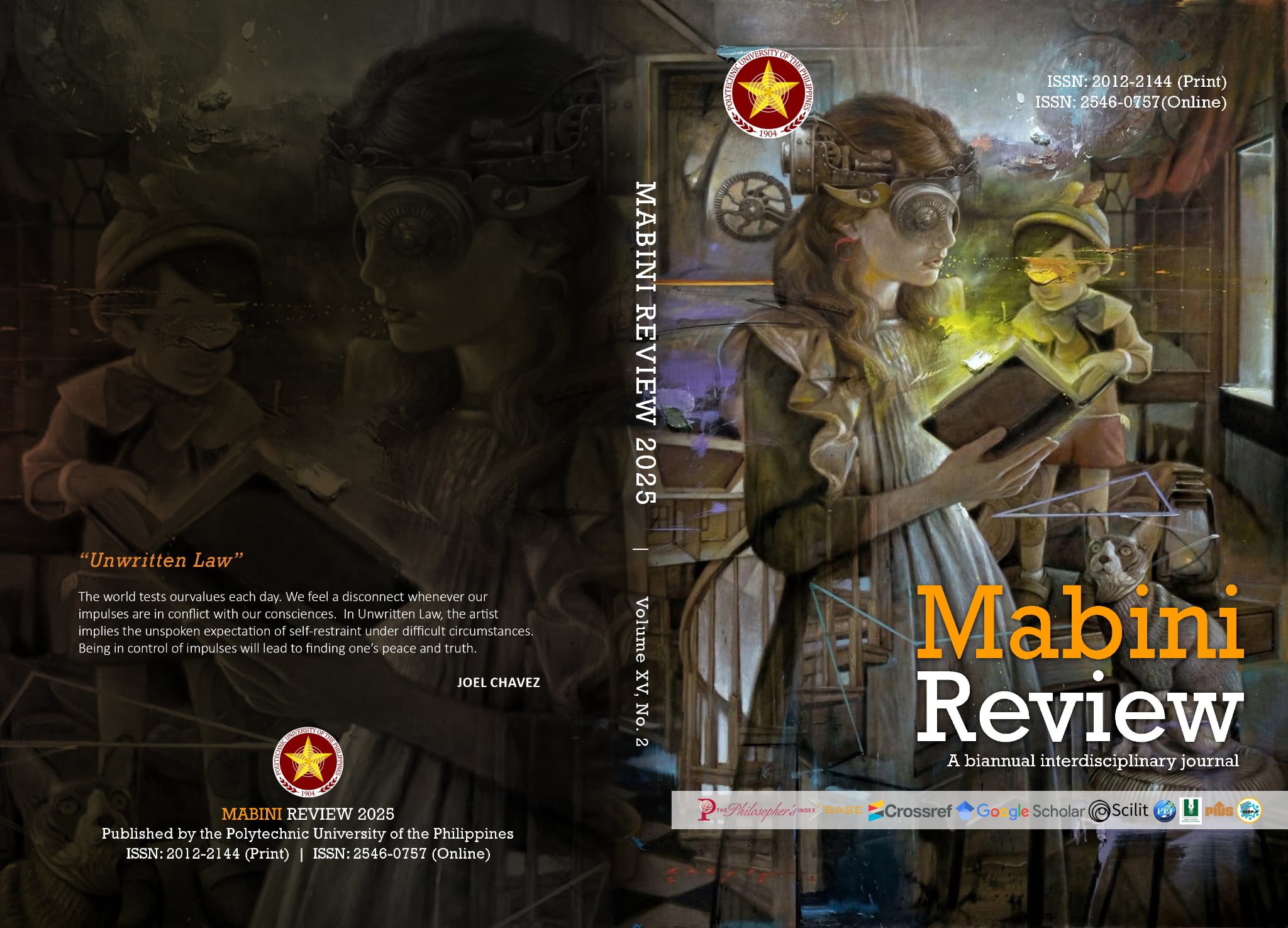The Poetry of Rustica C. Carpio: A Mirror of Humanistic Discourse, Truths and Values
DOI:
https://doi.org/10.70922/jhhna918Abstract
This paper is an attempt to analyze 8 poems in Filipino written by a prominent woman of Philippine letters, Rustica C. Carpio. Her disposition as a promising poet had never been the subject of local literary scholarship. As a poet, Carpio can be situated within the tradition of humanist poetry with her poems published in her book “Tilamsik ng Panitik” efficaciously chronicling the complex nature of man. The analysis situated the poems of Carpio within certain prominent traditions in Philippine poetry. In the form and content of her poetry, it is evident that we can see the strong influences of the mimetic, didactic and representational modes, impulses and traditions in Philippine poetry. As mimetic, representational and didactic poems capturing humanist discourses, truths and values, her readers can witness the depth and complexity of how she made sense of the actions and ideologies of man stressing different humanistic truths and values. The poems show how she provided an image of man with the goal of understanding his daily, promising, resilient, infallible realities, his naturalistic capricious disposition, utopic vision, and his morality and sympathy engaged in life’s vicissitudes rendering them as mirrors in understanding humanistic ideas and discourse. Leaning on the humanist discourses of Andrew Copson, Richard Norman and Jeaneane Fowler, the offshoots of these humanistic leanings of the poems also provide potent points for ruminating on the good life, humanistic deeds and wholeness of the human person, the search of true humanistic happiness, and the morality of his interpersonal connections.
Downloads
References
Downloads
Published
Issue
Section
License
Copyright (c) 2025 Jan Raen Carlo M. Ledesma, Ph.D. (Author)

This work is licensed under a Creative Commons Attribution-NonCommercial 4.0 International License.
Articles published in the MABINI REVIEW will be Open-Access articles distributed under the terms and conditions of the Creative Commons Attribution-Noncommercial 4.0 International (CC BY-NC 4.0). This allows for immediate free access to the work and permits any user to read, download, copy, distribute, print, search, or link to the full texts of articles, crawl them for indexing, pass them as data to software, or use them for any other lawful purpose.


